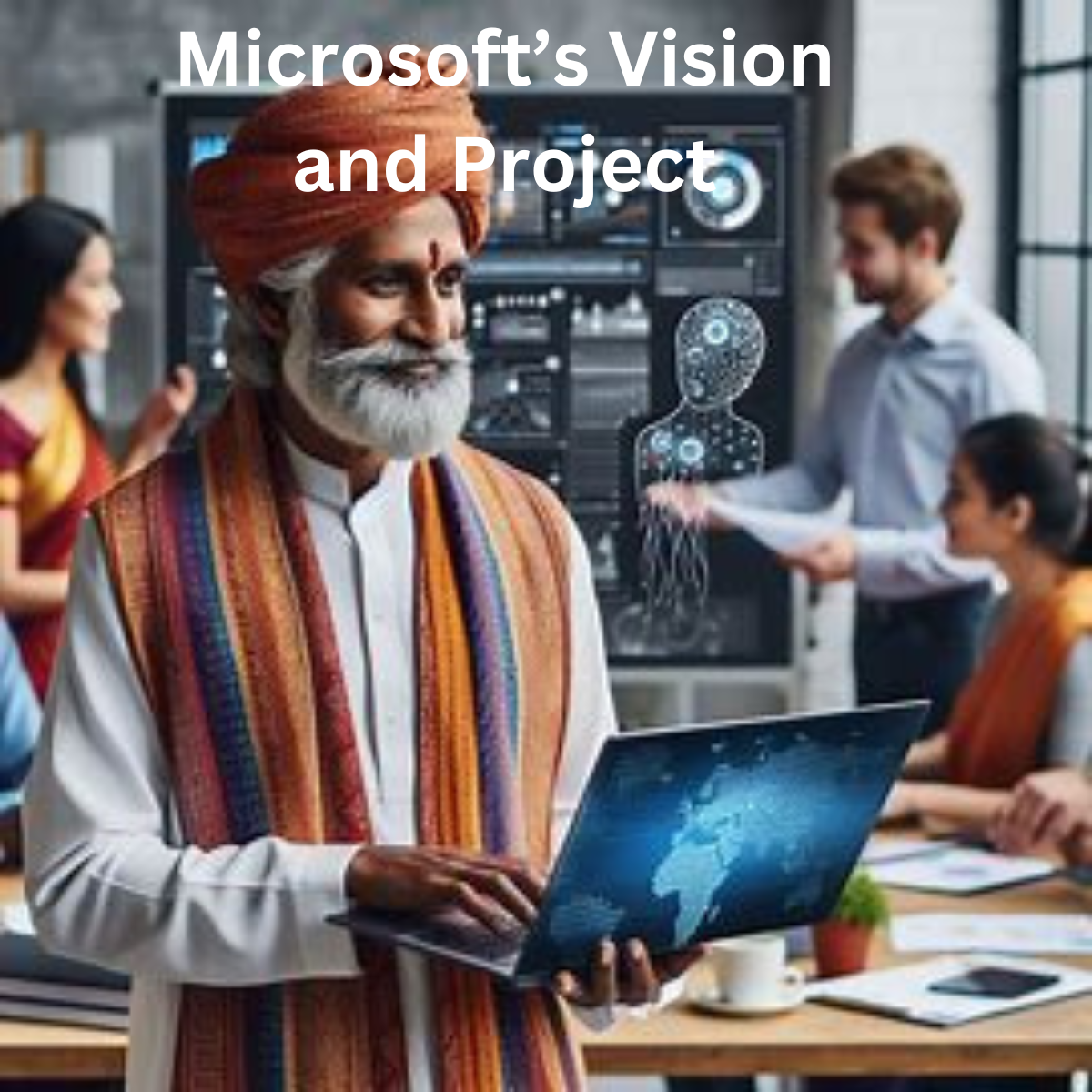Microsoft’s, one of the leading technology companies in the world, has a vision and a project to empower India with AI, and to make it more inclusive, sustainable, and accessible for everyone. Microsoft’s vision is to enable every Indian to achieve more with AI, by providing them with the skills, tools, and platforms to use and benefit from AI. Microsoft’s project is to collaborate with various stakeholders, such as the government, academia, industry, and civil society, to create and implement AI solutions that can address India’s specific needs and aspirations.
India is a country of diversity, complexity, and opportunity. It is home to more than 1.3 billion people, who speak over 22 official languages and hundreds of dialects, and who belong to different religions, cultures, and backgrounds. It is also a country of contrasts, where rapid urbanization, economic growth, and digital innovation coexist with poverty, inequality, and social challenges.
AI, or artificial intelligence, is the technology that enables machines or systems to perform tasks that normally require human intelligence, such as learning, reasoning, and decision making. AI has the potential to transform various aspects of society, such as education, health, agriculture, and governance, and create new opportunities and challenges for individuals and communities. AI can also help India address some of its pressing problems, such as improving access to quality education and health care, enhancing agricultural productivity and food security, empowering women and marginalized groups, and promoting environmental sustainability and disaster resilience.
Microsoft has partnered with the Central Board of Secondary Education (CBSE) to integrate AI into the school curriculum, and to train teachers and students on AI concepts and applications. Microsoft has also launched the AI Classroom Series, a free online program that offers live sessions and hands-on projects on AI for students and educators.
Microsoft has also supported the development of AI-based learning platforms, such as Makkala Jagriti, which provides personalized and adaptive learning experiences for underprivileged children, and Eka, which connects rural students with mentors and resources.
Microsoft has collaborated with the Apollo Hospitals Group to create the AI Network for Healthcare, a platform that uses AI to improve the diagnosis and treatment of various diseases, such as cardiac conditions, eye diseases, and COVID-19. Microsoft has also worked with the All India Institute of Medical Sciences (AIIMS) to develop the AI-powered MINE platform, which helps doctors and researchers analyze large and complex medical data, and generate insights and recommendations. Microsoft has also supported the creation of AI-based health solutions, such as SanketLife, which provides affordable and accessible cardiac care, and Forus Health, which detects and prevents blindness.
Microsoft has joined forces with the International Crops Research Institute for the Semi-Arid Tropics (ICRISAT) to create the AI-Sowing App, a mobile app that uses AI to advise farmers on the optimal time to sow crops, based on weather data, soil data, and historical data.
Microsoft has also partnered with the Indian Council of Agricultural Research (ICAR) to develop the Pest Risk Prediction API, an API that uses AI to predict pest infestation and crop damage, based on weather data, crop data, and pest data. Microsoft has also supported the development of AI-based agricultural solutions, such as CropIn, which provides smart farm management and analytics, and Intello Labs, which provides quality assessment and grading of crops.
Microsoft’s AI project is a broad and ambitious initiative that aims to empower people and organizations with AI across various domains and applications. You can learn more about Microsoft’s AI project by visiting the official website, where you can find information about Microsoft’s vision, strategy, products, and partners for AI. You can also explore some of the examples of Microsoft’s AI initiatives in India, such as AI for Education, AI for Health, and AI for Agriculture, and see how they are making a positive impact on society.

